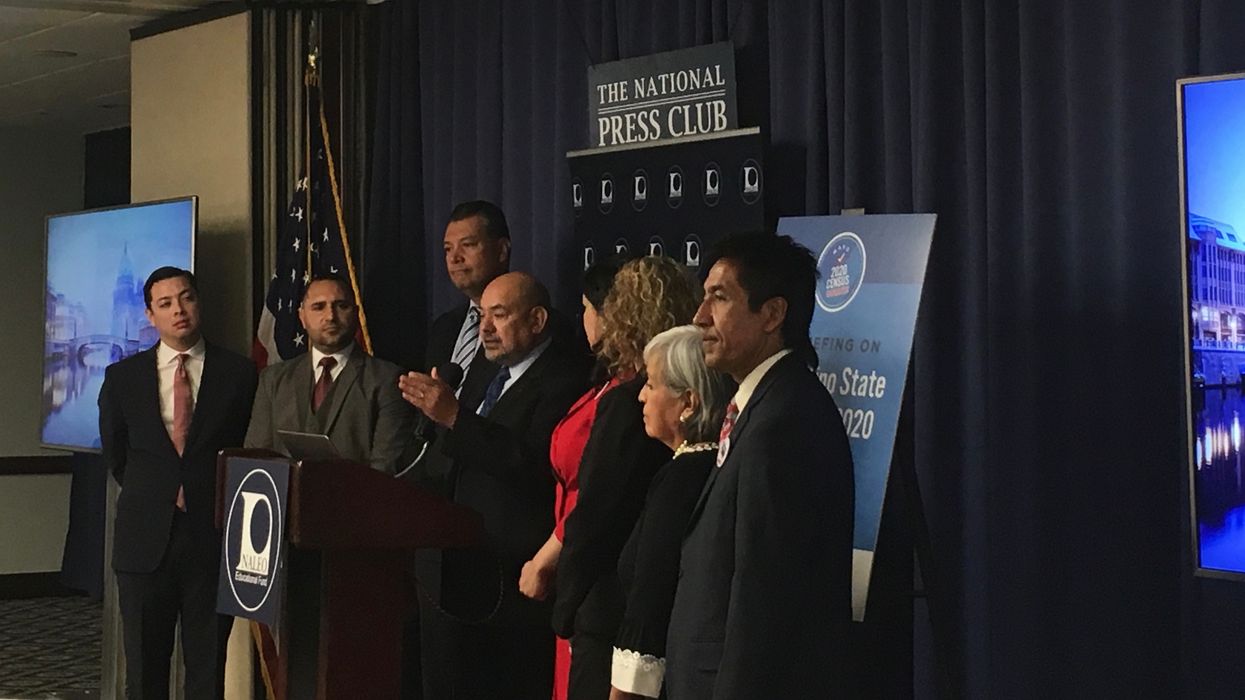The possible inclusion of a citizenship question in the 2020 census has more people talking about the decennial count than usual. But this controversial debate isn't the only issue facing the Census Bureau.
Even though the census is less than a year away, the agency has only conducted one round of tests, in Rhode Island, which experts say is hardly enough preparation. And for the first time, the bureau will offer the option to fill out the census online, but some elected officials are concerned about gaps in digital literacy and accessibility. At the core of all these census challenges is a lack of adequate funding from the federal government.
The National Association of Latino Elected and Appointed Officials Educational Fund delved into all of these concerns and more through its National Latino Commission on Census 2020. The group, a collection of state and municipal officials, presented its research and findings on how best to address these challenges at the National Press Club on Wednesday.
The commission made several policy recommendations to Congress, the Census Bureau, the White House and the Commerce Department, including the removal of the citizenship question and approval of the $8.5 million needed to fully fund the 2020 count.
If the citizenship question remains, NALEO and many other groups fear some residents, particularly in the Latino community, will be discouraged from participating, leading to a massive population undercount and misappropriation of funds.
"Barring swift intervention, data from the 2020 Census will be inaccurate and incomplete causing national damage," the report states.
Overall, the report says the agency needs to dedicate more resources to outreach and communication, particularly in hard-to-count communities. The commission suggested the Census Bureau partner with community organizations to help share information.
With the agency looking toward a more digital future, the commission underscored the importance of planning for communities with poor Internet access or knowledge. Assistance for those who choose to participate online should be available, the report states. The Census Bureau should also reassure U.S. residents that their private information will be secure, if they opt to fill it out online, the commissioners said.
While the report made several suggestions, the commission did recognize the Census Bureau's difficulty allocating resources due to a lack of funding from the federal government.
James Christy, a representative from the Census Bureau who attended the briefing, reassured the commission and others in attendance that his agency was working hard to ensure a fair and accurate count in 2020. He also noted the Census Bureau's efforts to offer the questionnaire in more languages than in past years.
But Arturo Vargas, CEO of the NALEO Education Fund, responded that while he appreciates these efforts, the census still cannot accommodate the diversity of languages spoken in the United States. For instance, the only Native American language currently offered is Navajo. The online version and the questionnaire assistance documentation will be offered in 12 non-English languages. This leaves out many communities, Vargas said, although other forms of assistance will be available in nearly 60 languages.




















